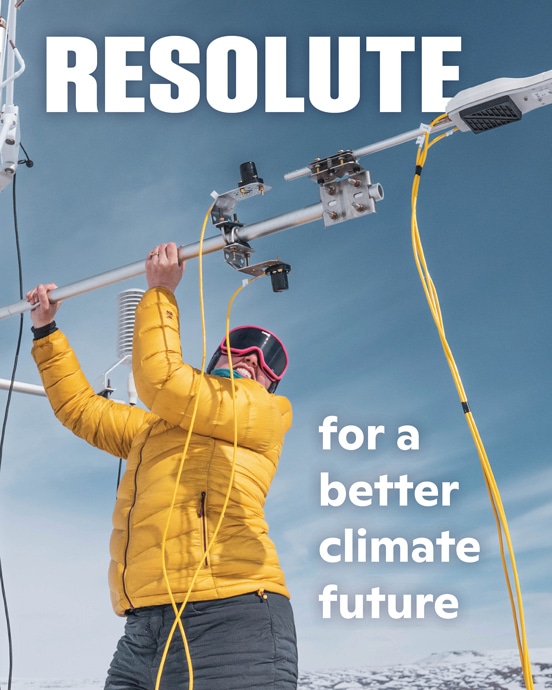Select publications
Zobel, Z., J. Wang, D.J. Wuebbles, and V.R. Kotamarthi. 2018. Analyses for High Resolution Projections through the end of the 21st Century for Precipitation Extremes over the United States. Earth’s Future (accepted for publication). doi:10.1029/2018EF000956
Zobel, Z., J. Wang, D.J. Wuebbles, and V.R. Kotamarthi. 2017. High‐Resolution Dynamical Downscaling Ensemble Projections of Future Extreme Temperature Distributions for the United States. Earth’s Future 5(12). doi:10.1002/2017EF000642
In the news
It will feel much hotter in WA over the next century. We aren’t prepared, Cascade Public Media’s Crosscut, July 22, 2019. “If you start getting temperatures well outside the norm — and Washington is not immune to this — you can’t adjust as well. A day at 90 degrees in Seattle just doesn’t occur very often, so 90 degrees is still a big deal,” Zobel said.
Select recent publications
Francis, J.A., N. Skific, and S.J. Vavrus. 2018. North American weather regimes are becoming more persistent: Is Arctic amplification a factor? Geophysical Research Letters. doi:10.1029/2018GL080252
Kapsch, M.-L., N. Skific, R.G. Graversen, M. Tjernstrom, and J.A. Francis. 2018. Summers with low Arctic sea ice linked to persistence of spring atmospheric circulation patterns. Climate Dynamics. doi:10.1007/s00382-018-4279-z
Chen, L., J.A. Francis, and E. Hanna. 2018. The “Warm-Arctic/Cold-Continents” pattern during 1901-2010. International Journal of Climatology. doi:10.1002/joc.5725
Cohen, J., K. Pfeiffer, and J.A. Francis. 2018. Warm Arctic episodes linked with increased frequency of extreme winter weather in the United States. Nature Communications. doi:10.1038/s41467-018-02992-9
Francis, J.A. 2017. Why are Arctic linkages to extreme weather still up in the air? Bulletin of the American Meteorological Society, 98:2551–2557. doi:10.1175/BAMS-D-17-0006.1
Wu, B., K. Yang, and J.A. Francis, 2017. A cold event in Asia during January-February 2012 and its possible association with Arctic sea-ice loss. Journal of Climate. doi:10.1175/JCLI-D-16-0115.1
Francis, J.A, S.J. Vavrus, and J. Cohen. 2017. Amplified Arctic warming and mid-latitude weather: New perspectives on emerging connections. WIREs Climate Change, E474. doi:10.1002/wcc.474
Cohen, J., J.A. Francis, and K. Pfeiffer. 2017. Winter 2015/2016: A turning point in ENSO-based seasonal forecasts. Oceanography, 30(1). doi:oceanog.2017.115
Screen, J.A. and J.A. Francis. 2016. Contribution of sea-ice loss to Arctic amplification is regulated by Pacific Ocean decadal variability. Nature Climate Change. doi:10.1038/NCLIMATE3011
Liu, J., Z. Chen, J.A. Francis, T. Mote, and Y. Hu. 2016. Has Arctic sea ice loss contributed to increased surface melting of the Greenland ice sheet? Journal of Climate. doi:10.1175/JCLI-D-15-0391.1
Overland, J.E., K. Dethloff, J.A. Francis, R.J. Hall, E. Hanna, S.-J. Kim, J.A. Screen, T.G. Shepherd, and T. Vihma. 2016. Nonlinear response of midlatitude weather to the changing Arctic. Nature Climate Change. doi:10.1038/NCLIMATE3121
Wu, B., K. Yang, and J.A. Francis. 2016. Summer Arctic dipole wind pattern affects the winter Siberian High. International Journal of Climatology, 36(13). doi:10.1002/joc.4623
Francis, J.A. and N. Skific. 2015. Evidence linking rapid Arctic warming to mid-latitude weather patterns. Philosophical Transactions of the Royal Society A, 373. doi:10.1098/rsta.2014.0170
Francis, J.A. and S.J. Vavrus. 2015. Evidence for a wavier jet stream in response to rapid Arctic warming. Environmental Research Letters 10. doi:10.1088/1748-9326/10/1/014005
Francis, J. A., and S. J. Vavrus. 2015. Consequences of a rapidly warming Arctic. In: Climate Change and Public Health, J. A. Patz and B. Levy [Eds.]. ISBN: 9780190202453. Oxford University Press, New York.
In the news
The biggest Arctic expedition in history is launching for the North Pole. Dr. Francis detailed her role developing the science plan for the Multidisciplinary drifting Observatory for the Study of Arctic Climate (MOSAiC) for the Washington Post. September 20, 2019
Climate Matters: How New England is being impacted by our changing climate. Boston 25 News featured an interview with Dr. Francis in their climate special. September 17, 2019
Climate change: how the jet stream is changing your weather, Financial Times. “We think the rapidly warming Arctic is making these wavy patterns happen more often, and as a result, we are seeing weather patterns themselves become much more persistent,” Dr. Francis said. August 6, 2019
Heat Wave Blankets Much Of The U.S. This Week, NPR, July 18. “We’re seeing heat waves ride on a background temperature that is just getting warmer. So if you’ve got a situation where temperatures are ten degrees warmer than normal, normal itself is actually getting warmer. So a heat wave that might have happened back in the 50s, is going to be a lot hotter now,” Dr. Francis said.
Yes, Climate Change is Making Severe Weather Worse. Article by Dr. Francis for the June 2019 issue of Scientific American.
U.S. House of Representatives Science Committee Hearing on Climate Science. Dr. Francis testified on the connection between climate change and extreme weather events to the U.S. House of Representatives Committee on Science, Space, and Technology. February 13, 2019
Why the Midwest’s deep freeze may be a consequence of climate change. Interview on PBSNewsHour. January 31, 2019
Brace for the Polar Vortex; It May Be Visiting More Often. Quoted in The New York Times. January 18, 2019
Extreme weather in 2018 was a raging, howling signal of climate change. Quoted in The Washington Post. December 31, 2018
Why Hurricane Michael’s Power Caught Forecasters Off Guard. Quoted in The New York Times. October 11, 2018
As Florence’s Power Nears the Carolinas, Residents Brace for the Worst. Quoted in The New York Times. September 11, 2018
Climate change may mean more spring snowstorms in the future. Perspective piece in The Washington Post. March 21, 2018
Is warming in the Arctic behind this year’s crazy winter weather? Guest article in Market Watch. January 12, 2018
Hurricane Sandy Spawns Storm of Climate Research. Quoted in Scientific American. October 29, 2014




